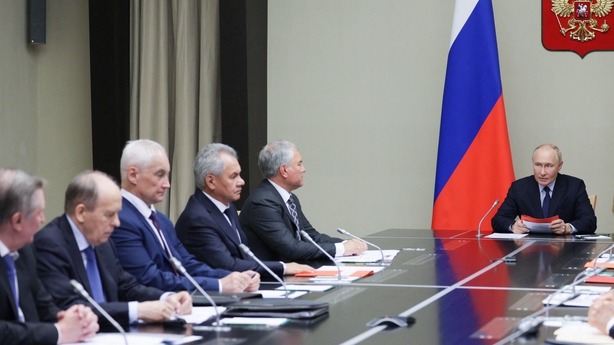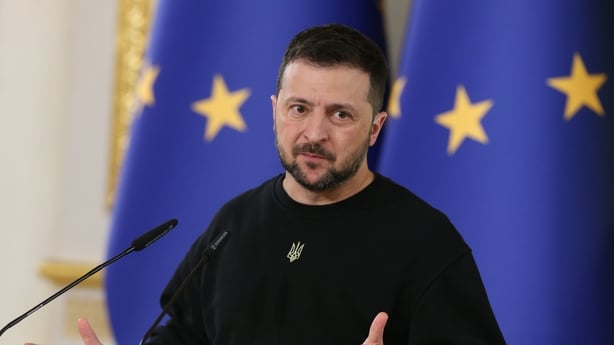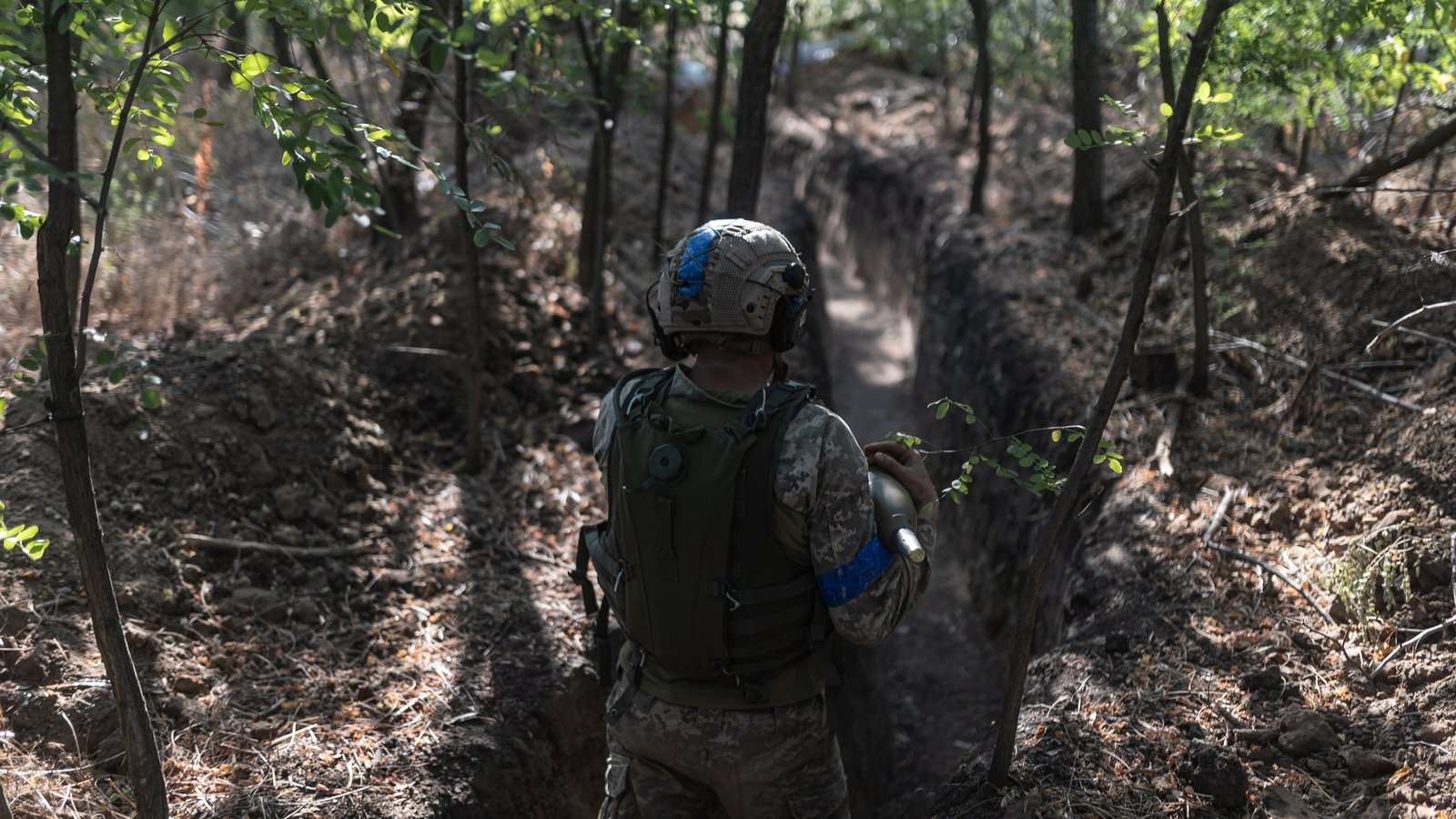After months on the back foot, in battles on the front lines in Ukraine, Kyiv launched a surprise attack into Russian territory this week, opening a new front in the war and catching Moscow off guard.
Ukrainian forces breached the border into Russia’s Kursk region on Tuesday and have surprised everyone with their success.
The Ukrainian military released video purporting to show Russian troops surrendering at a border crossing, they have since taken several settlements and have been fighting as far as 20km inside the border.
Russia’s emergency ministry has declared a federal state of emergency in the Kursk region. Such is Ukraine’s success that yesterday, state news agencies reported that more than 76,000 people have been evacuated from areas bordering Ukraine.
There have been sporadic forays into Russia from Ukraine by anti-Moscow Russian militias before but this is different. It’s a much larger force of official Ukrainian troops breaching Russia’s sovereign border and fighting with western supplied weapons. It is, in fact, the largest incursion into Russian territory since World War II.
Ever since Ukraine’s much vaunted ‘Spring offensive’ of early 2023 failed to gain any significant ground, momentum in the war seemed to be swinging towards Russia.
Ukraine failed to push the Russian army back, which had built more extensive defences.
Since then, the war has been extremely hard and attritional, Ukraine suffered when the US congress blocked a military aid package for months and Russia has pushed the front lines backwards in the Donbass.
Russia has begun attacking the second city of Kharkiv again and long-range Russian missiles and glide bombs have caused havoc, killing civilians and crippling Ukraine’s electricity network.
So, with Ukraine’s military seemingly stretched to breaking point, why would it attack Russia and open a new front in the war.
Historian and CEO of Mayak Intelligence Consultancy Firm Marc Galeotti told RTÉ News there are several motives for the surprise attack.
“It looks as if this is to threaten the Russians and force them to move forces away from the Donbas, where at the moment they’re making advances” he said.
“Secondly it’s a way of embarrassing [Vladimir] Putin, which it has undoubtedly done, and lastly it’s also a way of changing the narrative.”
Phillips O’Brien, Professor of Strategic Studies at the University of St Andrews in Scotland, said that even if Ukraine pulls back in a few days a new permanent front has been opened in the war that will force Russia to deploy troops to the border and keep them there.

“It is certainly conceivable the Ukrainians might take a chunk of Russia and fortify right over their border, and that would make them put the Russians and Vladimir Putin in particular under a huge amount of pressure to try and retake it,” he said.
“Ukraine has been fighting this war with certainly one hand tied behind its back, and they’re no longer want to do that”, said Prof O’Brien.
“They are basically saying to the Russians we can now cross the border wherever we want, and I think their hope is the Russians then have to expend a lot of resources defending their own border.”
Another significant development in the war has been long range Ukrainian strikes deeper into Russia. Ukrainian missiles struck air bases in Morozovsk and Lipetsk in the last week targeting Russian guided bomb stockpiles.
Russian so-called ‘glide bombs’ have caused havoc in recent months. They can be fired from aircraft deep inside Russian territory and are much more difficult to shoot down than surface-to-air missiles because of their trajectory.
“They’re not wildly accurate, but they’re so explosive they don’t have to be that accurate because they have such a heavy punch”, said Prof O’Brien.
“The Russians have been using these guide bombs in places like the Donbass to just blast holes in the Ukrainian lines and make small advances,” he added.

So Ukraine’s best form of defence is attack and they’re trying to destroy these weapons before they can be fired.
“As they acquire more stocks of long-range missiles from the West and also as they build more long-range drones of their own, they are going to continue to keep up this attack because it’s the only real way that they can protect themselves against this particular Russian weapon,” said Mr Galeotti.
Satellite images and video on social media showed massive explosions at the air bases hit in Morozovsk and Lipetsk which suggests they hit stockpiles of weapons.
Despite these successes both experts say it’s important not to overrate Ukraine’s gains.
Despite Russia’s flaws it still can mobilise a vastly greater force than Ukraine and in time would likely retake any ground lost.
Still, it will force a change in Russia’s deployments, not only will they have to protect the Kursk region but it shares a 2,000km border with Ukraine. There is also more than 900km of border between Belarus and Ukraine, from which Russian troops attacked in February 2022, which suddenly is also in play.

